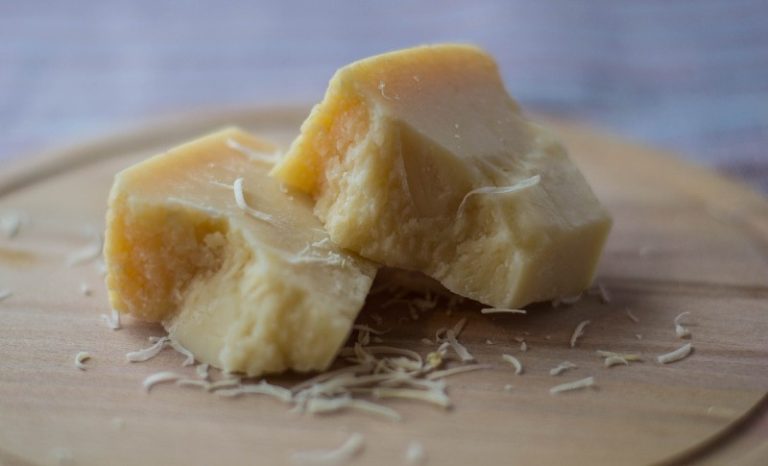Hambleton Bakery
It is spring. Daffodils dancing in the breeze, acid green fresh grass, pink blossom and fleeting glances of woolly lambs pass me by as I wind my way along country lanes to my destination, Hambleton Hall Hotel, near Oakham, in Rutland.
Wisps of wood smoke spiral into the early morning mist and we are greeted with warm smiles and a crackling fire in the former hunting lodge sitting room of the hotel. Tim Hart, owner and co- founder of Hambleton Bakery has sparkling eyes, as he explains that artisanal bread is having a great resurgence all over the country. The bread they make today at Hambleton Bakery is exactly the same as the bread that would have been made over 200 years ago in this area, and they are very proud of it.
The local Hambleton loaf starts out with slow fermented stoneground flour. Once the fermentation is complete the bread is hand formed and left to finish proving in round willow baskets before it is turned out onto the floor of the wood fired oven. He is justifiably proud that in just three years the bakery is now opening a franchise in Oundle, Northamptonshire, this month and they will also be supplying bread to Farndon Fields Farm Shop in Market Harborough, as well as having a shop in Oakham and Stamford.
In Great Britain today commercial bakeries use a factory process that combines degraded flour with high doses of yeast and accelerated fermentation. With numerous chemical additives to ensure a long shelf life, this tasteless, mass produced bread has for too long dominated our high street and our shopping basket.
Before the time when bakeries could buy yeast in packets, wild yeast cultures were grown within the daily routine of a bakery’s work, in two main ways. A sourdough system starts by allowing a flour and water mix to ferment naturally or the beer barm method, which was popular in England. Hambleton bakery makes bread using both methods. The sourdough method, Tim explains, is not what was commonly used to make bread in England, and his research has showed “…that in pre-industrial Britain bakers went to the local brewery and borrowed some of the froth off the top of the fermenting beer, or barm as it is called, and made a dough starter with that. This method is exactly what we did for what we now call our own local loaf.”
Julian Carter was Head Chef’s Aran Patterson’s sous chef here at Hambleton Hall, when he decided to return to his roots to bake. He says, “I was naturally excited by the possibility of making a local loaf.’” Julian is the fourth generation of eldest sons to become a baker, and despite starting his career as a chef in the Royal Air Force, he was drawn back to the baking oven. Between these two men an outstanding bakery was born. It was time to meet the baker.
During the ten-minute drive from the Hall to the bakery, the road winds east then south around the reservoir. Sunbeams bounce off the water, gleaming through the trees along the way. We arrive, but the bakery is not at all as I expected it to be. The grandeur of the hall is far behind us now. This working set-up is very humble. Overlooking a meadow, a painted sage green door of a once abandoned electrical sub-station opens. Heavenly fresh baked bread and cake smells escape as a smiling chap with boxes full of baked delights is waved off. He promises it won’t be long before he is back. We are welcomed in.
There are bright strip lights hanging from high magnolia painted ceilings. The Spanish designed wood fired Ipsor oven is set in traditional red brick and radiates a constant heat, whilst all around baked goods are being stacked, waiting for their next destination Custard tart loaded trolleys, and rows upon rows of filled baskets heaving with proved sourdough sit slightly askew. It is as though they are angling to be first into the oven. Yeasty, vanilla, fresh baked scents envelop all around us.
Julian is deftly filling about a hundred pastry cases with custard at lightning speed. He doesn’t spill a drop. They are Portuguese egg custard tarts. He talks at speed, with a soft native accent from his hometown of Liverpool. “The slow fermentation of our bread encourages the development of lactobacilli which in turn creates lactic acid and it is this that is responsible for the slightly sour taste of sourdough bread.”
The bread itself is renowned for its excellent keeping properties. Lactic acid is an effective mould inhibitor and the bread lasts up to a week without becoming mouldy. Julian moves over to the oven. Opening the lower cast iron door there is a blast of heat and I catch a glimpse of the hot ashes firing the oven. Loading oak logs whilst telling me that the oven itself was sourced from Barcelona, Julian seems unconcerned by the heat. It is a rotary oven and costs just £14 a day to run, Julian tells me. “It’s not just about the romantic view of baking bread, but the practical considerations as well, and that has to include cost”
The air around us is both sweet and sour, as the protective layer over the sourdough is pulled to one side by Julian. Never still for a moment, he moves his flour-dusted doughs checking them with almost paternal concern. The loaves are made using stone ground local organic flour milled from the local farm and supplied from a nearby windmill, which is mixed with local water. Combine these elements and you get a crusty, malty handsome loaf. It is as I anticipated, absolutely delicious.
I sit watching the oven door open as the loaves are transported and bedded onto the oven floor. I am eighteen again, it is 5am and I am in the south of France working in a bakery. This bread is everything our society and our heritage has lost, and I feel as if my soul has been fed by this experience, not just my belly.
It is time to go home. I reluctantly leave the warmth of Hambleton Bakery, but not before I am ladened with goodies. I leave with my sourdough and promise to return. I have treasure to share with my family.
Contact Details:
Website for Hambleton Bakery: www.hambletonbakery.co.uk
Address: Cottesmore Road, Exton, Oakham, Rutland LE15 8AN
Website for Hambleton Hall Hotel: www.hambletonhall.com
Vanessa Kimbell’s website: www.prepped.co.uk




